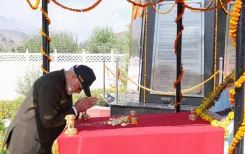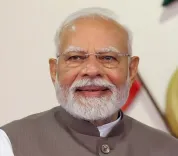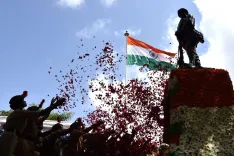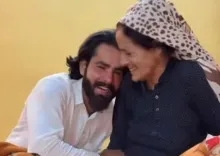Did PM Modi Visit Maldives for Its 60th Independence Day?
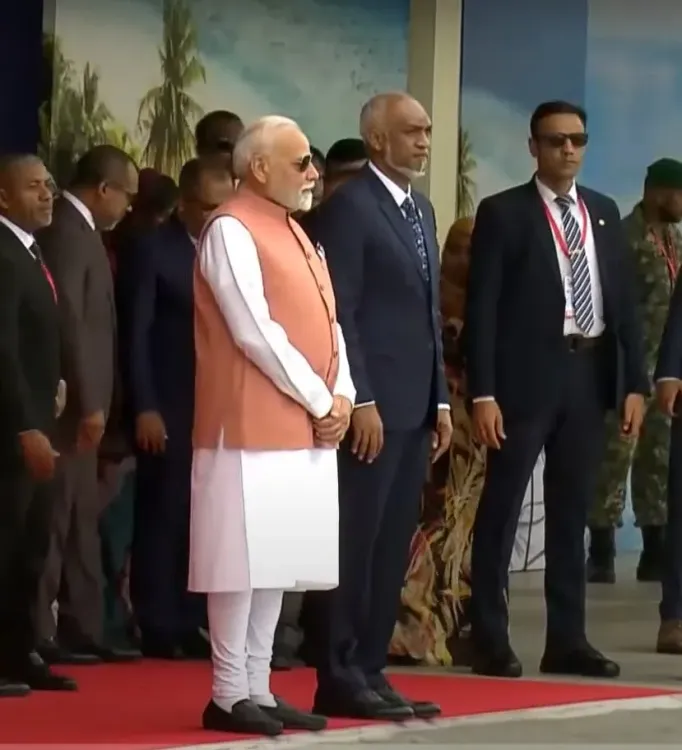
Synopsis
Key Takeaways
- PM Modi's visit signifies deepening ties between India and Maldives.
- The Maldives celebrates its 60th Independence Day, coinciding with 60 years of diplomatic relations with India.
- Discussions will focus on infrastructure, defense, and economic collaboration.
- India's military support during crises has fostered trust with the Maldives.
- India remains committed to its ‘Neighbourhood First’ policy.
Male, July 25 (NationPress) Prime Minister Narendra Modi touched down at Velana International Airport in Male, Maldives, on Friday, receiving a ceremonial welcome that heralds the commencement of an important state visit to this island nation. He was greeted by Maldivian President Dr Mohamed Muizzu, amidst traditional melodies and chants of 'Vande Mataram', showcasing the strong cultural ties between the two nations.
Invited by President Muizzu, PM Modi is here to serve as the Guest of Honour during the Maldives' 60th Independence Day celebrations, a significant diplomatic move that underscores the strengthening of bilateral relations.
This marks PM Modi’s third trip to the Maldives and notably the first visit by any head of state during President Muizzu’s administration.
The Ministry of External Affairs (MEA) highlighted that, “The two leaders will review the progress made in the execution of the India-Maldives Joint Vision for a ‘Comprehensive Economic and Maritime Security Partnership’, which was adopted during the Maldivian President's state visit to India in October 2024.”
This visit illustrates India’s ongoing commitment to its ‘Neighbourhood First’ policy and the broader strategic framework of Vision MAHASAGAR, aimed at promoting regional cooperation and security in the Indian Ocean.
The discussions between the leaders are anticipated to cover crucial areas such as infrastructure development, defence collaboration, and economic connectivity, further solidifying the multifaceted partnership between India and the Maldives.
India and the Maldives have a rich history of ethnic, linguistic, cultural, religious, and commercial connections.
Among the first to acknowledge Maldivian independence in 1965, India established diplomatic ties that have remained amicable and devoid of political strife.
India’s immediate military assistance during the 1988 coup attempt in the Maldives fostered lasting trust. The rapid withdrawal of Indian forces afterward assured Maldivian sovereignty, reinforcing India's position as a dependable ally.
Moreover, this visit holds immense significance as it coincides with the 60th anniversary of the Maldives’ independence and the 60th anniversary of diplomatic relations between the Maldives and India, as stated in the official press release.

